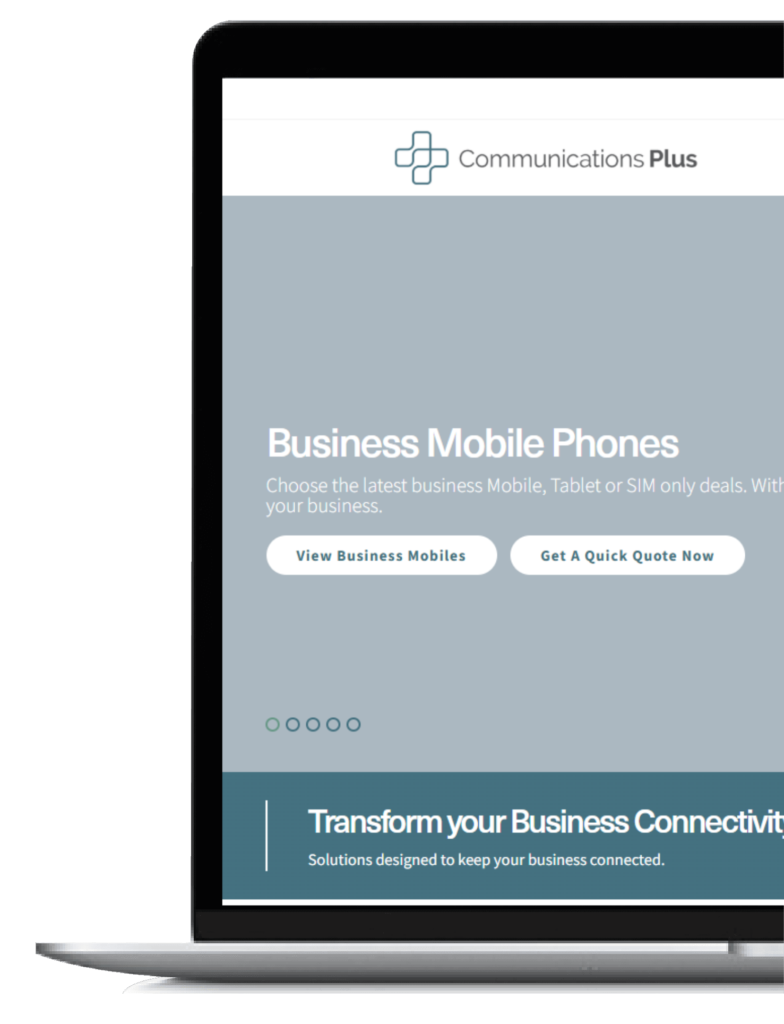Voice over Internet Protocol (VoIP) can transform your business’ communication.
By shifting your voice calls, messages and texts away from fixed phone lines and on to the internet, it means you can have a more flexible and efficient communication network that fits into the office, as well as working in a remote working model.
You essentially have two options when it comes to which VoIP system to choose from:
- Hosted VoIP
- On-premise/ private VoIP
There are benefits to both systems, but which one should you choose for your business?
That’s what we’ll look at in this blog.
Hosted VoIP
A hosted VoIP system is a cloud-based system.
Like any other cloud-based technology you don’t need to host the servers and you’ll usually ‘rent’ the cloud space from a service provider.
One of the main benefits of a hosted VoIP is that it’s highly flexible and scalable, so works well for any business size.
It also means that as the business grows and you need more infrastructure, you can easily add to this through your cloud provider.
You also have your system maintenance taken care of too, so you won’t have to worry about patching or working on the technology.
A hosted VoIP is also easy to set-up and install, because you don’t need any physical infrastructure, you simply pay for the service you need and you’ll be up and running quickly.
It also won’t put a lot of pressure on your own WiFi or internet broadband, because all the comms run through your hosts server.
Finally, a hosted system is perfect for a company using remote working, as employees can simply sign into the cloud network from anywhere.
But you’ll have to measure these benefits against the fact that you won’t actually own or have control over the cloud system, which means you’ll require external support for maintenance or repairs.
Private VoIP
As the name suggests, a private VoIP system is a network that you own and host the physical infrastructure in your office.
This can provide a number of benefits, one of the main benefits being that you won’t share space over a cloud network, which means only your business’ communications will be running over the VoIP system.
It also means, because you own the infrastructure, you have more control over your network and can change it as needed to meet the needs of your business.
If you’re a large business, with hundreds of internal phone lines running over the network, a private/ on-premise VoIP can be a good option.
But, there are some drawbacks to having a private VoIP network, especially if you’re a smaller or medium sized business.
One of the biggest drawbacks is the upfront costs you’ll have for the initial infrastructure and set up. While you won’t pay an ongoing subscription like you would with a hosted VoIP, it does mean a higher outlay in the early stages.
It also means that when it comes to scaling, you’ll have to invest more on new physical infrastructure.
You also have to take into account the amount of space you’ll need to securely store and maintain the servers and physical infrastructure, and this includes the cooling equipment and other systems you’ll need to regulate your private VoIP.
Finally, you’ll be responsible for the ongoing maintenance and updating of your system – which you’ll have more control over the network, it does mean you’ll be responsible for all costs associated with maintenance, repairs and updates.
Choosing between hosted VoIP & private VoIP
Ultimately, choosing between a hosted and private VoIP will depend on your business’ size and also your preference.
We tend to recommend a hosted VoIP for smaller to medium sized businesses as they provide as good a communication service as you need, but with the flexibility, scalability and cost efficiency you won’t find with a private VoIP network.
But if you’re a large organisation with the money, resources and space to host your own VoIP, then a private system could be best.
If you want to know more about setting up a VoIP system for your business, get in touch.
Our team of experts can work with you to understand the set-up you’ll benefit from the most and ensure you get the VoIP network that sets your business up for success in the future.
Want to know more? Get in touch!










